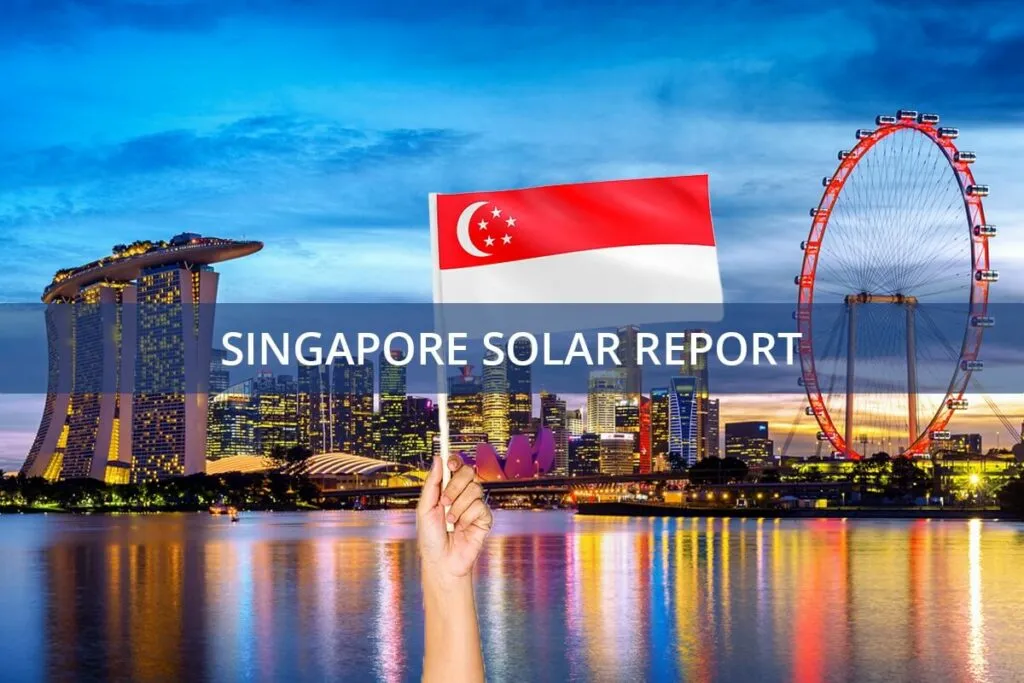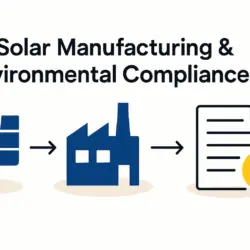Singapore is accelerating its solar energy initiatives, with recent efforts focusing on regional partnerships and infrastructure development to meet its climate goals. The nation has signed agreements with Indonesia and the International Energy Agency (IEA) to enhance solar power adoption across Southeast Asia. These collaborations aim to boost clean energy development, reduce reliance on fossil fuels, and strengthen energy security in the region.
Regional Partnerships and Infrastructure Development for Singapore solar growth
Singapore’s collaboration with Indonesia is a key step in its solar energy strategy. The two countries are working together to facilitate the cross-border transmission of renewable energy, with a focus on solar power. This initiative aims to enhance energy security, reduce carbon emissions, and promote sustainable development in both nations. This partnership aligns with the broader trend of Indonesia and Singapore fostering a $10 Billion Solar Manufacturing Supply Chain, as discussed on pvknowhow.com.
Additionally, Singapore and Indonesia are exploring joint investments in renewable energy infrastructure, including solar farms and energy storage systems. These projects are expected to create new economic opportunities and foster closer cooperation between the two countries.
The partnership with the IEA is another significant milestone for Singapore. Together, they aim to improve energy efficiency and increase the adoption of solar power in Southeast Asia. The IEA will provide technical support and expertise to help Singapore achieve its solar energy targets and enhance its energy security.
Progress on the SolarNova Programme for Singapore solar growth
Singapore has made significant progress in its solar energy initiatives through the SolarNova programme, which aims to install 190,000 solar panels across the country by 2030. This program is part of Singapore’s broader effort to achieve its climate goals and reduce its carbon footprint.
The Singaporean government has also introduced new incentives and regulations to encourage the adoption of solar energy. These measures include tax breaks for businesses that invest in solar infrastructure and subsidies for households that install solar panels. Additionally, the government has implemented regulations to ensure that new buildings are designed to accommodate solar installations.
Challenges and Future Outlook for Singapore solar growth
Despite these efforts, Singapore still faces significant challenges in its solar energy journey. The country’s limited land area and high population density make it difficult to find suitable locations for large-scale solar installations. Additionally, the high cost of solar technology and the complexity of integrating solar power into the national grid pose challenges for the widespread adoption of solar energy.
To address these challenges, Singapore is investing in research and development to improve the efficiency and cost-effectiveness of solar technology. The government is also exploring innovative solutions such as floating solar farms, exemplified by the Sembcorp and Meta agreement for a floating solar farm as reported by pvknowhow.com, and vertical solar panels to maximize the use of available space.
Notably, Singapore has already surpassed its solar energy target for 2025, achieving it two years ahead of schedule, according to pvknowhow.com.
Looking ahead, Singapore’s commitment to solar energy is expected to play a crucial role in the country’s transition to a low-carbon economy. The successful implementation of the SolarNova programme and other initiatives will not only help Singapore meet its climate goals but also set an example for other countries in the region.
Commitment to Singapore solar growth
Singapore’s efforts to boost solar energy adoption through regional partnerships and infrastructure development demonstrate its commitment to a sustainable future. The country’s collaboration with Indonesia and the IEA, along with its domestic initiatives, highlights the importance of international cooperation in addressing global climate challenges.
As Singapore continues to advance its solar energy initiatives, it is well-positioned to become a leader in renewable energy in Southeast Asia. By overcoming the challenges associated with solar energy adoption and leveraging innovative solutions, Singapore can achieve its climate goals and contribute to a more sustainable and resilient energy future for the region.



